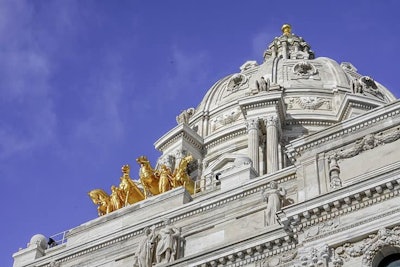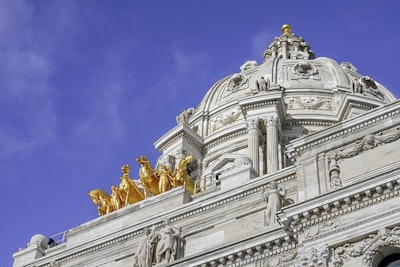

In the state Senate, the Health and Human Services Finance and Policy Committee amended and unanimously voted, 9-0, to pass Senate File 1179 earlier this month, which includes provisions to modernize a 5-year-old medical cannabis program that currently bans manufacturers from providing dried leaf and flower for qualifying patients to smoke.
As the law stands in Minnesota, only extracted oil products containing tetrahydrocannabinol (THC) can be sold and consumed, which are typically more expensive than smokable flower. That has left medical cannabis patients spending more money out of pocket or, perhaps, the inclination to pursue the illicit market. According to the Minnesota Department of Health, the average cost for a 30-day supply of medical cannabis was $316 in 2019.
The goal of S.F. 1179 is to make medical cannabis more affordable and more accessible to qualifying patients, Sen. Mark Koran told the MinnPost earlier this month. A Republican, Koran authored the bill.
In addition to allowing the state’s two manufacturers—LeafLine Labs and Vireo Health of Minnesota—to cultivate and distribute dried flower for smoking, other key provisions in the bill include adding opioid addiction as one of the nine qualifying health conditions, and a process for adding a delivery method for the medical program’s 11 distribution clinics in the state.
“S.F. 1179 and similar legislation demonstrate the normalization of legal cannabis—a trend that has accelerated during 2020 and the COVID-19 pandemic,” said Colin Kelley, an operating partner at Merida Capital Holdings who also serves as a board member for LeafLine Labs. “I anticipate that we will continue to see thoughtful advances in cannabis normalization preceding legalization.”
But S.F. 1179 is not a path to full legalization, as there’s a different finish line brewing in the land of 10,000 lakes.
The lower chamber of the state legislature is considering House File 600, an adult-use legalization effort which was first introduced and referred to the Commerce Finance and Policy Committee in February, and has since been amended and rereferred to the Labor, Industry, Veterans and Military Affairs Finance and Policy Committee, then the Workforce and Business Development Finance and Policy Committee and, last week, to the Agriculture Finance and Policy Committee. The bill has picked up 35 co-sponsors, all Democrats, who own a 52% majority in the House.
While H.F. 600 has tiptoed on party-line votes, Rep. Ryan Winkler, the chief author and House majority leader, framed the bill as non-partisan when he introduced it during a Commerce Finance and Policy Committee session last month.
“I think as you all probably know in this last election, in South Dakota, voters there overwhelmingly voted for Donald Trump’s reelection and overwhelmingly voted for cannabis legalization,” Winkler said. “So, in addition to rising public support, legalization enjoys broad bipartisan support.”
Winkler said he introduced H.F. 600 because the cannabis laws Minnesota has in place today are doing more harm than good. With the illicit market, cannabis is widely available but is poorly regulated, he said. Cannabis is “less dangerous” than alcohol and tobacco, both of which are legal and regulated, he said.
Winkler went on to discuss what he said are the shortcomings of the criminal justice system as it relates to cannabis convictions, an inadequate medical program, the potential tax revenue of adult-use legalization and favorable public opinion for it.
“Something like two-thirds of Americans, and a similar number of Minnesotans, believe that cannabis should be legalized for adult uses,” he said. “When we have a product that is broadly supported for legalization and we are using the criminal sanctions of prison, parole, probation and felony charges, which can last people’s entire lives, to restrict access to it, we are doing a deep injustice.”


























